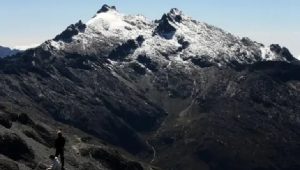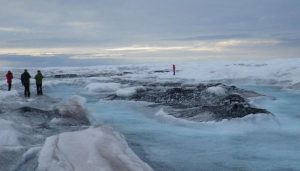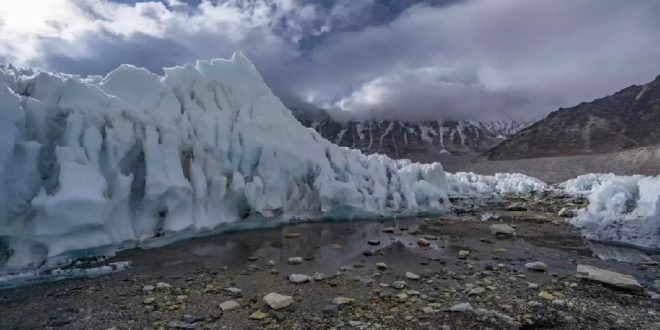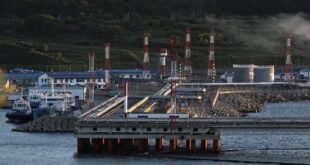11-05-2024
CARACAS: Venezuela may be the first nation in modern history to lose all its glaciers after climate scientists downgraded its last one to an ice field.
The International Cryosphere Climate Initiative (ICCI), a scientific advocacy organization, said on X that the South American nation’s only remaining glacier, the Humboldt, or La Corona, in the Andes had become “too small to be classed as a glacier”.
 Venezuela has lost at least six other glaciers in the last century.
Venezuela has lost at least six other glaciers in the last century.
With global average temperatures rising due to climate change, ice loss is increasing, helping to raise sea levels around the world.
“There has not been much ice cover on the last Venezuelan glacier since the 2000s”, Dr Caroline Clason, a glaciologist at Durham University, told Newsround. “Now it’s not being added to, so it has been reclassified as an ice field.”
In March, researchers at the University of Los Andes in Colombia told media the glacier had shrunk from 450 hectares to just two.
Luis Daniel Llambi, an ecologist at the university, told the Guardian that it had now shrunk to less than that.
While there is no global standard for the minimum size a body of ice must be to qualify as a glacier, the US Geological Survey says a commonly accepted guideline is around 10 hectares.
One study, published in 2020, suggested the glacier shrank to less than this sometime between 2015 and 2016 though it was still considered Venezuela’s last glacier by NASA in 2018.
Dr James Kirkham and Dr Miriam Jackson, glaciologists with the ICCI and the International Centre for Integrated Mountain Development respectively, explained that “glaciologists recognize a glacier as an ice mass that deforms under its own weight”. They told media in a joint statement: “Glaciologists often use a criteria of 0.1 sq km (10 hectares) as a common definition, but any ice mass above that size still has to deform under its own weight (to count).”
They suggested that there may have been issues accessing the Humboldt glacier in recent years, which could have delayed the publication of the measurements.
 Professor Mark Maslin, a professor of earth system sciences at University College London, said an ice field like the Humboldt roughly equivalent to the area of two football pitches, “is not a glacier”.
Professor Mark Maslin, a professor of earth system sciences at University College London, said an ice field like the Humboldt roughly equivalent to the area of two football pitches, “is not a glacier”.
“Glaciers are ice that fills valleys that’s the definition and therefore I would say Venezuela has no glaciers whatsoever,” he told media.
In December, the Venezuelan government announced a project to cover the remaining ice with a thermal blanket it hoped would stem or reverse the thawing process but the move drew criticism from local climate scientists, who warned that the covering could contaminate the surrounding habitat with plastic particles as it degraded, according to Spanish newspaper El Pais.
Prof Maslin said mountain glacier loss was “not directly reversible” as to survive through the summer months they needed enough ice to reflect sunlight and keep the air around it cool.
“Once a glacier’s gone, the sunlight heats the ground, makes it much warmer and makes it much less likely to actually build ice up over the summer,” he said.
Maximiliano Herrera, an extreme weather researcher, wrote on X/Twitter that the next countries that were likely to become glacier-free were Indonesia, Mexico and Slovenia.
Prof Maslin said these suggested nations “make logical sense” because of their relative proximity to the equator and relatively low-lying mountains, which made their ice caps more susceptible to global warming. (Int’l News Desk)
 Pressmediaofindia
Pressmediaofindia




